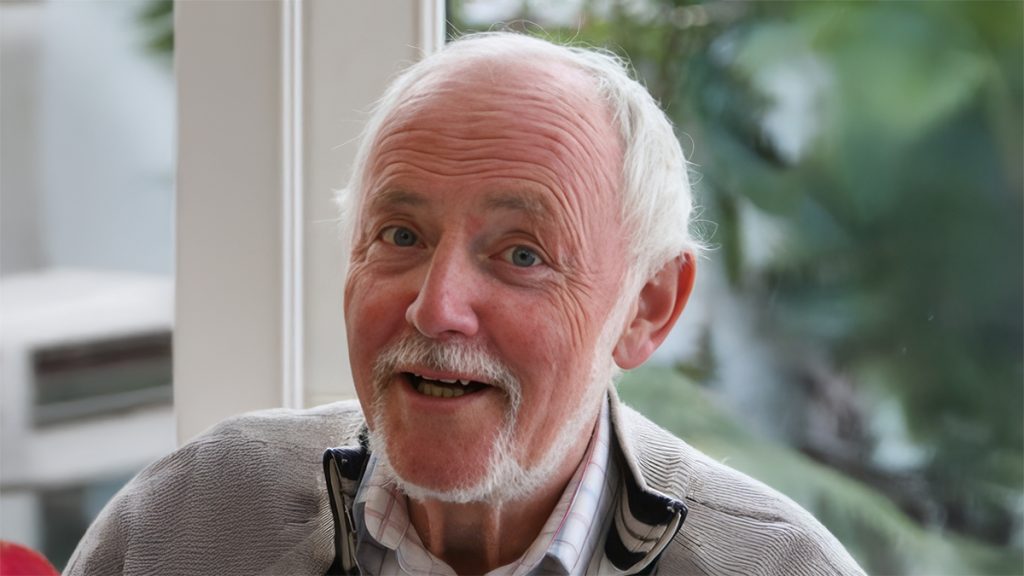The human search for God is never-ending.
When images of “people’s inhumanity to people” flash continually onto our television screens, we need to give meaning to these events. The people undergoing this suffering, in desperation, call out to God to intervene and stop their slaughter. But their cries go unheard.
Solidarity with humanity
People have long grappled to explain God’s presence in the midst of contemporary evil.
For the Jewish survivor Elie Wiesel, God was present in Auschwitz in the gruesome hanging of three young men.
- For the Black theologian James H. Cone, God was present on the lynching tree of the Ku Klux Klan.
- For the Gazan pastor Munther Isaac, God is found under the rubble of Gaza.
- For Jürgen Moltmann, the German theologian, suffering is not something distant from God but what She experiences alongside humanity. This God, through the incarnation and crucifixion of Jesus, actively participates in the world’s suffering.
Kazoh Kitamori, a Japanese theologian known for his “Theology of the Pain of God,” proposes that God experiences suffering.
This pain is not a flaw in God’s nature but an essential aspect of Her being, revealing both Her love for humanity and Her sorrow over sin.
The Psalms
Attempts to reconcile human suffering with the presence of God are found in the Psalms.
- In Psalm 74, the writer feels abandoned and questions God’s absence at a time of destructive suffering. He asks God: “Why do you hide yourself in times of trouble?”
- Psalm 10 questions God’s inaction in the presence of grave oppression. The psalmist asks God: “Why do you stand far away and hide yourself in times of trouble?”
- Psalm 22 is quoted by Jesus on the cross. The psalmist cries out, as does Jesus: “My God, my God, why have you abandoned me?”
The Crucified God
These words from Psalm 22 express Jesus’s felt abandonment on the cross and the Son of God’s abandonment by his Father. What people saw on the cross was a dying, crucified God.
The impassibility of God
Traditional theology taught that God, in Her transcendent remoteness, cannot suffer.
The God of compassion
However, the true nature of God as a God of compassion was revealed by Jesus and recorded in the Gospels.
Jesus bursts into tears
In his Gospel account of Jesus’s meeting with Mary four days after her brother Lazarus’s death, John the evangelist describes a very emotional Jesus:
Jesus saw her crying, and the Jews who had come with her crying. He was greatly troubled in spirit and deeply moved.
He asked, “Where have you put him?”
They told him, “Lord, come and see.”
Jesus burst into tears. So the Jewish leaders said, “See how much he loved him!” (John 11:33–36).
Hope in the resurrection
The Resurrection and the Reign of God are not just future events but present realities.
They offer hope to those who are presently experiencing inhuman and indiscriminate suffering at the hands of their fellow human beings.

- Brendan Butler is a former secondary school teacher who specialised in teaching Religious Education. His postgraduate degree was in theology from the Antonianum University in Rome. In 1979, he co-founded “The Irish El Salvador Support Committee” and later “The Ireland Algeria Solidarity Group”. He was the co- ordinator of “The N.G.O. Peace Alliance” which was active in the Irish peace movement. He helped to revive the Catholic Church reform movement “We are Church Ireland”, of which he was joint co-ordinator and spokesperson for several years.
- He published: My Story by Jesus of Nazareth, As narrated by Brendan Butler.
- Brendan is also active in contributing articles, letters to Irish Newspapers on Church and human rights issues.

